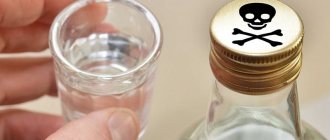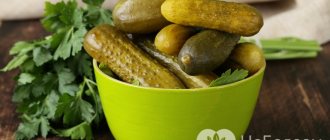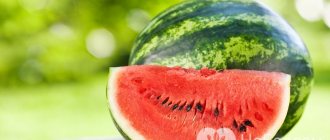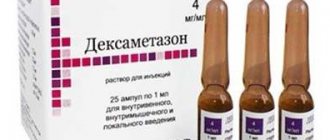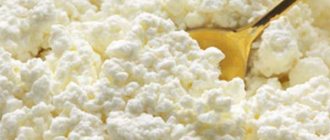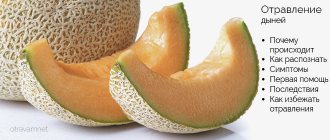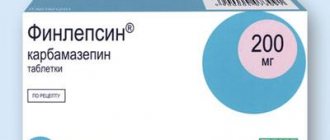Nuts are a source of essential and essential amino acids, vitamins, microelements and fats. The protein of nuts is easily digestible, they have absolutely no cholesterol, many doctors advise replacing a small part of animal food with nuts in your diet to prevent vitamin deficiency, cardiovascular and cancer diseases. However, nuts are a very fatty product, so they should be consumed in small quantities. Pistachios, Brazil nuts, hazelnuts, pecans can cause allergies; walnuts, chestnuts, almonds, and hazelnuts also have contraindications in the form of acute intestinal diseases, blood diseases, heart rhythm and central nervous system disorders; peanuts should not be used for those suffering from varicose veins. And, like other foods, nuts can be poisonous.
Treatment of nut poisoning
If you suspect nut poisoning, you should rinse your stomach as soon as possible. To do this, use a weak soda solution or very weak potassium permanganate. After washing, drink any sorbent drug and drink a lot of liquid.
Medicines are prescribed by the doctor if necessary.
Diet is considered a mandatory part of the treatment of nut poisoning. In the first day or two, it is advisable to completely eliminate food intake. At the very least, you should definitely give up fatty, spicy, heavy foods, dairy products, and alcoholic beverages.
We recommend reading: Captopril overdose: consequences, how many tablets is a dangerous dose
Next, meals should be organized in small portions: they eat dishes boiled or cooked in a double boiler. It is necessary to drink a lot, gradually restoring impaired body functions.
To speed up recovery, you must adhere to the following recommendations:
- in the acute period of nut poisoning, the patient must remain in bed, drink a lot (both water and green tea, rosehip or chamomile infusions are excellent);
- on the second day, when the symptoms of poisoning have subsided, you can gradually eat grated boiled food, but in very small quantities;
- over the next few days, the diet is gradually expanded, but continue to drink a lot of water, avoid eating fatty and spicy foods.
How many of them can be consumed without harm per day, per month and at one time?
The average weight of a walnut is 10-15 g, with the weight of the kernel being approximately half and equal to 5-7 g. Taking into account the recommended daily intake, you can determine the permitted amount of nuts for consumption. The table shows how many grams and pieces of nuts you need to eat per day, per month and at a time:
- 15/3-4
- 10/2-3
- 30/5-7
- 20/4-6
- 900/150
- 600/100
It is not recommended to give walnuts to children under three years of age.
Symptoms of Nut Poisoning
In most patients, nut poisoning is caused by overeating. The clinical picture has many similarities to common food poisoning or nondiabetic ketoacidosis.
The first signs appear, regardless of the species of nuts: [4]
- dull pain in the stomach and intestines;
- impaired digestion of food, diarrhea and constipation;
- nausea with bouts of vomiting;
- irritation of the oral mucosa;
- general weakness, lethargy, loss of strength;
- dizziness, confusion.
Nutmeg poisoning exhibits characteristic symptoms similar to alcohol or marijuana intoxication. Patients complain of a feeling of pain and compression in the temporo-occipital area, heaviness of thinking, and apathy. In case of severe poisoning, the victim must be hospitalized. [5]
With nut overeating, signs of pancreatic failure appear:
- pain under the ribs on the right;
- discomfort in the stomach;
- bloating, belching, nausea;
- vomiting with bile, bitter taste in the mouth.
When poisoned by a low-quality and moldy product, patients note the appearance of frequent loose stools, abdominal pain, loss of appetite, thirst, trembling and weakness in the arms and legs. Painful symptoms increase within a few hours after eating.
Medicines are prescribed by the doctor if necessary.
First aid
Potassium permangantsovka
Feeling worse 2-5 hours after eating. If nut poisoning occurs, it is important to immediately provide first aid to the victim:
- The stomach is washed several times by artificially inducing vomiting. Potassium permanganate or a little table salt is added to the water.
- Give any absorbent drug to drink (activated carbon - 1 tablet per 10 kg of weight).
- Make the patient drink a lot to avoid dehydration due to diarrhea and vomiting. It is allowed to offer drinking or mineral water, weak sweetened tea, and special medications (Regidron).
- In case of almond poisoning, the victim is given sweet tea. Sugar is an antidote to hydrocyanic acid.
In severe forms of food intoxication, you should seek medical help.
Possible consequences
Poisoning with the fruits of cedar, peanuts, hazelnuts and others often leads to complications:
We recommend reading: Is it possible to eat expired foods: why you can’t do this and why they are dangerous, what will happen if you eat something that is not fresh, and what foods are prohibited from eating?
- myocarditis;
- jade;
- hepatitis;
- pneumonia.
If intoxication is treated in a timely manner, the consequences can be avoided.
Poisoning can be mild or severe. There are 3 stages:
Daily intake and rules of use
To maintain health, longevity and a beautiful figure, it is recommended to eat 7 walnuts every day. In order for them to be digested well, they must be chewed thoroughly.
Strengthening the body with walnuts
It is useful to use the following composition: mix one glass of chopped walnuts, raisins and dried apricots, add one lemon minced through a meat grinder and 300 g of honey. This delicacy should be eaten 1 tablespoon 3 times a day before meals. It has a general strengthening effect, strengthens the immune system and energizes.
Antiparasitic colon cleansing
To expel parasites from the body, it is recommended to consume walnuts for 3 days according to the following scheme:
- 6 nucleoli - in the morning half an hour before breakfast;
- 5 - before lunch;
- 4 - before dinner.
People were treated according to this scheme many centuries ago. The recipe remains relevant today, which confirms its effectiveness.
Nut poisoning: methods of prevention
To avoid poisoning, it is recommended to follow preventive rules.
- Purchases of nuts are made at trusted points; it is not recommended to purchase the product in unverified places.
- If the product has an unpleasant taste, it is better to refuse to use it.
- It is better to peel walnuts (and others too) immediately before eating.
- Do not eat this dish if you have allergic reactions,
- Do not overeat nuts, watch in moderation.
- Food packaging must be sealed.
Compliance with such measures will avoid unpleasant sensations.
People often wonder whether they can eat nuts if they are poisoned? Doctors do not advise using the product during the recovery period after intoxication. Such food is difficult for the patient at this time, so it is recommended to avoid it.
Nut poisoning can lead to unpleasant consequences and disrupt a person’s normal life. It is recommended to adhere to preventive rules; if signs of poisoning appear, contact a medical facility.
Nuts are a valuable food product. They contain essential vitamins and minerals for the human body, vegetable fats and proteins. All these components have a beneficial effect on human health.
Nuts satisfy hunger well, as their calorie content is 500-700 kcal per 100 g of product. That is, you can always have a full snack with a handful of hazelnuts or peanuts. Despite the large number of calories, nuts are recommended for anyone struggling with excess weight.
This can be explained by the fact that they improve metabolic processes in the body, which means they contribute to the rapid burning of carbohydrates and fats. It is enough just to reduce the daily consumption of this product to 25-30 g.
Causes
The most common provocateurs are the following factors:
- Violation of hygiene rules. Helminth larvae and pathogenic bacteria are often present on the surface of the shell. Therefore, it is recommended to thoroughly wash the products and, if possible, heat them.
- Failure to comply with the expiration date. Peeled nuts are especially dangerous.
- Poisoning is caused by allergies. In this case, anaphylactic shock or Quincke-type edema is likely.
- Intoxication from peanuts and others is possible as a result of the use of pesticides. Agricultural crops are not necessarily exposed to poisons. Thus, pine nuts can absorb chemicals used to irrigate forest areas.
- Excessive use. Provokes diseases of the digestive organs.
You should not risk your health and life by eating raw green almonds. Such a feast is quite capable of leading to death. Therefore, it is advised to roast the nut - this reduces the toxic qualities.
Possible complications
The most serious consequences of intoxication with bitter almonds. It can lead to rapid death, and if the victim can be saved, hemodynamic disorders and psycho-neurological disorders are common complications.
Poisoning by pesticides contained in nuts can cause the development of pneumonia, myocarditis, hepatitis, and nephritis.
Foodborne illnesses and gastrointestinal disorders due to nut abuse usually resolve without serious health consequences, but the patient is required to strictly adhere to a gentle diet for one to two weeks.
When to see a doctor
Intoxication with nut kernels is tolerated quite easily, regardless of the first day. Urgent medical attention is required in all cases of bitter almond poisoning. It is impossible to independently understand the severity, and intoxication with hydrocyanic acid can cause death. A team of specialists will be called to help with subsequent treatment. Therapy will be prescribed to restore the body.
You should consult a doctor under the following conditions: severe pain in the abdomen, an increase in symptoms / its persistence beyond 48 hours, a decrease in blood pressure, a decrease in urinary secretions, yellowness of the skin and mucous walls, loss of reason.
How to prevent poisoning
To prevent a useful product from turning into a dangerous one, you should adhere to the following rules:
- Before eating, nuts in shell should be rinsed well in warm water and dried on a towel;
- if the nut kernels have a specific bitter or sour taste, discard them;
- if you suspect an allergy to the food components that make up nuts, you should avoid eating them;
- nuts should be stored in a dark, cool, well-ventilated area, in glass or ceramic containers;
- pine nuts are worth buying if they are in shell;
- do not eat nut shells if they have traces of mold;
- do not abuse your love for nuts, remember that their total daily consumption should not exceed 35-50 g.
Preventive actions
The most reliable and effective remedy that can provide maximum protection against walnut poisoning is having information on how to prevent it and prevent it. Therefore, there are several basic rules that should be remembered and carefully followed. These include:
- Before eating nuts, they should be washed thoroughly.
- If the kernels have a specific sour or bitter taste, as well as an unusual odor, then they should not be eaten.
- If a person has an allergy, he should completely exclude this product from his diet.
- You can eat no more than 30 grams of walnuts per day.
- The kernels must be stored in the shell. They should be in a cool, dry place with normal access to oxygen and an air temperature in the range of -5 - +10.
- Shelled walnuts can only be stored in hermetically sealed glass containers.
- You should not eat walnuts on which mold is already visually visible, even if it is on the shell.
Some people make various tinctures based on walnuts, which are subsequently used to treat various diseases. It is necessary to use the resulting composition with extreme caution, as it can cause diarrhea.
The kernels should not be used by people who have contraindications to them. This may cause complications or other negative consequences such as diarrhea or vomiting.
How to choose good nuts
When going to the market to buy nuts, you should remember a few simple rules that will help you buy a quality product:
- You should not buy fruits with dried shells, covered with dark spots and patches of mold. It is in such nuts that mold fungi develop. The products of their vital activity are aflotaxins. These substances can cause poisoning and severe allergies.
- When buying nuts, you should smell them. If the fruits emit a strong rancid odor, you should not purchase the product.
- It is better to give preference to shelled ones rather than peeled ones.
- If you shake the nut near your ear, you can determine the age of the pod. Old dried kernels rattle like a rattle.
- It is necessary to check the quality of the core at the break. If the break has an unnatural bright yellow tint, it means the seller wants to sell you an expired product. Avoid this purchase.
Nut poisoning occurs not only when eating spoiled product. Some varieties contain saturated oils and active substances that are beneficial in small quantities, but can be harmful in overdose. Sometimes they provoke severe allergies and disruption of internal organs. To prevent unpleasant complications, you need to learn how to choose and properly store high-quality nuts and know their properties.
Complications after intoxication with nuts are different. In most cases, the functioning of the digestive tract organs is disrupted, the intestinal microflora suffers, and dysbacteriosis develops.
Pine nut
The product contains a huge amount of protein, so you should not consume more than 50 g per day. In addition, the composition contains heavy histamines that affect brain receptors.
We recommend reading: Folic acid vitamin B9
Pine nut poisoning is more reminiscent of a common allergy, aggravated by the breakdown products of protein compounds.
This causes kidney damage, exacerbation of urolithiasis and stimulates the movement of stones along the ureter.
What are the benefits of nuts?
Many nutritionists recommend including different types of nuts in your daily menu. The tasty product contains a huge amount of useful substances, vitamins and microelements. They are well absorbed by the human body and help prevent vitamin deficiency. With regular use, positive effects are observed:
- the functioning of the brain improves, neural connections are strengthened, stress during mental work is relieved;
- the natural cleansing of the body from toxins and harmful compounds is stimulated, bile becomes of better quality;
- cells are saturated with Omega-3 and Omega-6 acids, which normalize the functioning of the heart muscle and intestinal motility;
- blood pressure returns to normal, blood vessels are cleared of thrombomass and become more elastic;
- due to improved blood circulation, the epidermis improves, the skin and mucous membranes become smooth and healthy;
- hemoglobin and cholesterol levels are normalized.
Nuts contain amino acids, phosphorus, calcium, iodine, and light proteins. They are useful for diseases of the thyroid gland and respiratory system, heart, diabetes and urolithiasis.
But all the beneficial properties are revealed only with moderate consumption of kernels: an overdose of nuts is as dangerous as uncontrolled intake of vitamin complexes.
Its consequences negatively affect the digestive system and depend on the type of natural toxin.
Benefit
When consumed in moderation, nuts provide many benefits. A number of substances have a positive effect on the state of the cerebral cortex, which reduces the risk of the onset or progression of senile dementia. They are so high in calories that there is no need to use meat when eating them.
Although bitter almonds seem dangerous, they are used in the treatment of many diseases and inflammations. Nuts improve memory, relieve tension in the nervous system, and treat disorders of the cardiovascular system, skin, and prostate gland.
The kernels contain a lot of vegetable fats. But, unlike animal fats, nuts have no cholesterol, eliminating the risk of obesity and blockage of blood vessels. They remove toxins and improve intestinal function.
Of course, the benefits appear with moderate use of the product. If you do not follow the basic rules, the benefit will turn into great harm. Remember - a person is responsible for his own health!
To some people, nut poisoning seems nonsense - this healthy product is often recommended to be included in the diet. However, the threat of intoxication exists if the rules of use and expiration dates are violated. Sometimes there are risks of death.
Is it possible to get poisoned by nuts?
Nuts are a very attractive food that is both entertainment and an opportunity to consume substances beneficial to the body in a convenient form. But improper consumption of nuts can result in poisoning with serious consequences.
A mature nut grain contains enzymes that are natural inhibitors, that is, they slow down the process of early germination.
The chemical composition of the nut, in addition to elements beneficial to humans, contains nutrients for the growth of the future young plant. And these substances are good for the plant, but not for the human body - they contain lectins, which can very significantly disrupt the processes of digestion and absorption of substances.
The mature nut grain itself is edible, but the shell (pericarp) in which it is wrapped by nature is a protective mechanism and nutrient medium for the ripening of the nut and contains toxic substances. For this reason, when eating a nut, the pericarp must be peeled off, even if it is thin and resembles a skin.
Nuts are almost 100% plant protein, but this protein is an allergen. Some types of nuts (peanuts, brazil, almonds, hazelnuts) contain proteins with a particularly strong sensitizing effect. As has been noted, heat treatment of peanuts, Brazilian almonds, and almonds increases the allergic properties of nuts.
Nuts are often susceptible to mold contamination, which makes their storage problematic. For long-term storage and transportation, nuts are treated with special chemicals that protect them from mold. But this fact creates the preconditions for chemical residues - disinfectants - to enter the body when nuts are consumed.
How to eat nuts so as not to put the body in a dangerous position? After all, poisoning with nuts and causing allergies is a frequent danger that accompanies their consumption.
A necessary condition for eating nuts is soaking them in hot water for several hours. Many toxic plant substances, when soaked, pass into an aqueous solution, which reduces the toxicity of the nut. Next, the nuts need to be dried and fried a little on a baking sheet or frying pan, which will allow the remaining chemicals to evaporate and kill mold.
But allergy sufferers and people prone to skin rashes are not recommended to get carried away with eating nuts in order to avoid the possible development of anaphylactic shock, a fatal condition.
Symptoms
Nut mass poisoning is most often associated with the ingestion of various toxins into the body, which were caused by improper storage of products. A characteristic symptom is a rash that is localized in the oral cavity, and irritation of the tonsils also appears. To understand what exactly caused intoxication in the body, you need to pay attention to the accompanying symptoms.
Excessive use
If the body is poisoned as a result of excessive consumption of walnuts, the following symptoms appear:
- Bitter taste in the mouth;
- belching with an unpleasant odor;
- pain appears in the epigastric area;
- feeling of discomfort;
- nausea and vomiting;
- bloating;
- diarrhea.
Missing Fruits
If a person has eaten spoiled walnuts, then in this case he will have the following symptoms of intoxication:
- Increased body temperature;
- vomiting and nausea;
- diarrhea;
- pain in the intestinal area manifests itself in the form of attacks;
- general malaise;
- weakness;
- pale skin;
- Strong headache.
Allergy
When a person begins to develop an allergy after eating walnuts, this process is accompanied by distinctive signs. The clinical picture may look like this:
- Various nonspecific signs appear on the skin: urticaria, dermatitis, rashes, spots, redness.
- stomatitis formation;
- bitterness in the mouth;
- it becomes difficult to breathe or suffocation appears;
- the nose begins to itch very much from the inside;
- formation of rhinitis;
- inflammation of the mucous membrane, which leads to lacrimation;
- a dry cough appears;
- diarrhea;
- nausea, followed by vomiting, but it may not occur;
- bloating;
- the appearance of edema of varying degrees of severity.
Cashew salad
Cashew salad.
Photo: Shutterstock.com/ Elena Veselova Ingredients :
- Quinoa - 1 cup
- Cauliflower, broccoli - 100 g each
- Avocado - 1/2 pcs.
- Honey - 2 tbsp. l.
- Lemon juice - 1/4 cup
- Olive oil - 3 tbsp. l.
- Parsley - 0.3 cups
- Roasted cashews - 1/2 cup
- Salt, pepper - to taste
How to cook:
Pour quinoa (this is a grain that came to us from South America) with 200 ml of water and cook for 15 minutes.
Boil broccoli and cauliflower, separate into florets, and cool.
For the dressing, mix honey, olive oil, lemon juice, salt and pepper.
Combine all ingredients, add chopped avocado, pour dressing.
Sprinkle the salad with nuts.
Pesto sauce"
Pesto sauce".
Photo: Shutterstock.com/ Karaidel Ingredients :
- Garlic - 2 cloves
- Olive oil - 0.5 cups
- Grated Parmesan, Pecorino or other hard cheese - 0.5 cups
- Green basil - a large bunch
- Roasted pine nuts - 0.5 cups
Article on the topic
How to make real pesto sauce?
Recipes from Italy How to cook :
Place pine nuts, cheese, garlic and basil leaves in a blender.
Grind all ingredients until smooth, gradually adding olive oil. In addition to basil, you can add other herbs to Pesto: thyme, tarragon, parsley.
Season the sauce with salt and pepper to taste.
Close the Pesto with a lid and put it in the refrigerator. The sauce can be stored for a week. You can season salads with it, add it to meat, fish, pasta, and pizza.
Almond
Almonds are often classified as nuts, although they are actually stone fruits. And in its shape the fruit is similar to an apricot kernel.
Almond. Photo: www.globallookpress.com
How is it useful? The kernels of cultivated sweet almonds contain fatty oil, proteins, vitamins, calcium, magnesium, coloring substances - carotene, carotenoids, lycopene and others. But wild bitter almonds are inedible and even poisonous, which is due to the presence of the glycoside amygdalin, the breakdown of which releases hydrocyanic acid.
Who is it contraindicated for? People with disturbances in heart rhythm and nervous system function (in particular, with severe overexcitation).
Article on the topic
Flaxseed oil and almonds. How to deal with vitamin deficiency during fasting
How to use? Sweet almond seeds are used for food fresh, roasted, salted, and also as a spice in the preparation of various dough products, sweets, chocolate, and liqueurs. Roasted salted almonds complement beer well. Almond shells are used to flavor and improve the color of alcoholic beverages. The well-known activated carbon is made from it.
Almond milk is one of the traditional cow's milk substitutes, especially popular with strict vegetarians and those who are allergic to cow's milk.
Macaroons are popular in many countries. Almond cream (frangipane) is indispensable for preparing many types of cakes and is used as a filling for sweet buns. In recent years, almond butter has become increasingly popular as an alternative to high-fat peanut butter.
